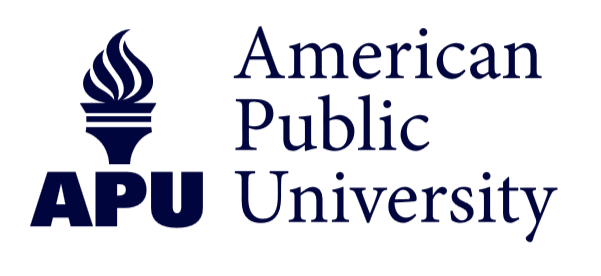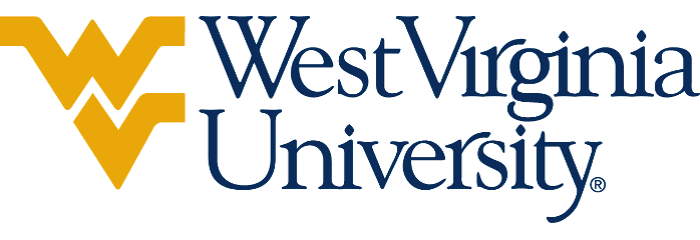Are you curious about the demand for psychology professionals in West Virginia? Are you interested in pursuing a Master’s degree in psychology at one of the top universities in the state? Do you want to learn more about the available resources for aspiring psychologists and the requirements for obtaining a psychologist license in West Virginia?
If so, you’re in the right place. In this article, we’ll provide you with all the information you need to make informed decisions about your academic and professional journey in psychology in West Virginia. By the end of this comprehensive guide, you’ll have a clear understanding of the field and the requirements to become a licensed psychologist in the state. Discover what West Virginia has to offer for aspiring psychologists and take the next step towards your dream career. Keep reading!
West Virginia Master’s in Psychology Programs
For those seeking to advance their knowledge and skills in psychology, pursuing a Master’s in Psychology in West Virginia can provide a valuable educational experience. Whether students are interested in pursuing general psychology, or specialized psychology programs, the universities in West Virginia offer a comprehensive education that prepares graduates for a wide range of careers in the field. In addition to Master’s in Psychology programs, West Virginia also offers a variety of Doctorate in Psychology programs. These advanced programs provide an enriching educational experience for individuals looking to further their expertise and professional growth in psychology.
Below is a list of universities and colleges in West Virginia that offer Master’s in psychology.
Master’s in General Psychology
American Public University System – Master of Arts in Psychology

The master’s in psychology program at American Public University (APU) is accredited by the Higher Learning Commission (HLC) and offers an in-depth exploration of human behavior across the lifespan, encompassing diverse topics such as social and cultural diversity, personality, and psychopathology. In this program, you will have the opportunity to learn about classical and fundamental schools of thought in psychology, while also gaining contemporary insights into how the human mind works through organizational and behavioral psychology.
The program has four components: concentrations (12 semester hours), core requirements (18 semester hours), graduate electives (0-6 semester hours), and a final project (3 semester hours) that showcases mastery of program material.
- Location: Charles Town, West Virginia
- Us News Ranking: 22 in the Best Online Bachelor’s Programs category
- Cost per credit: The cost of tuition for Master’s degrees and graduate certificates is $370 per credit hour.
Marshall University – Master’s in General Psychology

Marshall University offers a Master’s in General Psychology program, designed to provide students with a comprehensive understanding of the field. The program is accredited by the Higher Learning Commission (HLC) and emphasizes research, critical thinking, and real-world application. Coursework covers a range of topics, including Cognitive Psychology, Applied Social Psychology, Psychometrics, Ethical and Legal Issues in Psychology, and other relevant topics. Supplementary coursework covers a wide range of areas, such as Abnormal Psychology, Child Psychology, Cross Cultural Psychology, Health Psychology, and more. Graduates are well-equipped to pursue careers in research, teaching, or further study in psychology.
To earn a general MA degree, students must complete at least 36 graduate credit hours, though they may opt to take additional courses based on their objectives. All graduate psychology students must complete a common “core” of 24 credits as part of their requirements. The remaining credits are chosen in consultation with an advisor to align with each student’s academic and professional objectives.
- Location: Huntington, West Virginia
- Us News Ranking: 299 in National Universities
- Cost per credit: We advise you to contact directly by their email at admissions@marshall.edu with any questions on updated program cost & related learning fees.
Click here for Masters in Clinical Psychology programs in the state of West Virginia.
Master’s of Arts in Educational Psychology
West Virginia University – Master’s of Arts in Educational Psychology

West Virginia University is accredited by the Higher Learning Commission (HLC) and the General Major in Educational Psychology program is accredited by the American Psychological Association (APA). This accreditation ensures that the program meets high academic standards and prepares students for successful careers in the field. Through rigorous coursework and hands-on experience, graduates are well-equipped to make positive contributions to the education and psychology fields.
The master’s degree program in Educational Psychology typically requires completion of 36 credit hours and is tailored for individuals seeking a comprehensive education in learning, development, measurement, and research. Graduates of this program are equipped to pursue careers in various settings, such as K-12 schools and higher education institutions. The program provides students with the skills and knowledge necessary to succeed in the field of education and psychology, with a focus on research and critical thinking.
- Location: Morgantown, West Virginia
- Us News Ranking 2022: 126 in National Liberal Arts Colleges
- Cost per credit: For masteral programs, the tuition fee is $555, and an additional online learning fee of $100 is charged, bringing the total cost to $655.
West Virginia Psychology Resources
As mental health concerns continue to rise in West Virginia, psychologists play a crucial role in providing assessment, treatment, and support to individuals and communities in need. However, the effectiveness of psychologists depends not only on their expertise, but also on access to psychological resources and services.
Please refer to the following organizations for more information on the available psychological resources in West Virginia and how they can support psychologists in their work.
West Virginia Board of Examiners of Psychologists: The West Virginia Board of Examiners of Psychologists is responsible for regulating and licensing psychologists in the state. The board ensures that licensed psychologists adhere to ethical and professional standards, and that they provide quality care to their clients.
To become a licensed psychologist in West Virginia, individuals must meet specific requirements set by the board. These requirements include completing a doctoral degree in psychology, completing a certain number of supervised clinical hours, passing the Examination for Professional Practice in Psychology (EPPP), and passing the West Virginia Jurisprudence Examination.
The board also provides resources and support for licensed psychologists, including continuing education opportunities and information on current laws and regulations in the field.
West Virginia Psychologist License Lookup: Did you know that you can easily verify the licensure status of psychologists in West Virginia? Thanks to the West Virginia Psychologist License Lookup, members of the public and licensed psychologists themselves can access a comprehensive database of licensed psychologists in the state, including their licensure status and other important information.
This online tool is maintained by the West Virginia Board of Examiners of Psychologists and provides a valuable resource for anyone seeking the services of a licensed psychologist in the state. Let’s take a closer look at how the West Virginia Psychologist License Lookup works and why it is such an important tool for promoting transparency and accountability in the practice of psychology.
West Virginia Psychological Association: Founded in 1946, West Virginia Psychological Association (WVPA) represents psychologists from all areas of practice, including clinical, academic, research, and consulting.
One of the primary goals of the West Virginia Psychological Association is to promote the professional development of psychologists in the state. To this end, WVPA offers a range of professional development opportunities, including continuing education courses, workshops, and conferences. These events provide psychologists with the opportunity to learn about new research and treatment approaches, as well as to network with other professionals in the field.
West Virginia School Psychologists Association: The West Virginia School Psychologists Association (WVSPA) is a professional organization that represents school psychologists in West Virginia. WVSPA is dedicated to promoting the professional development of school psychologists and improving the quality of education for children in the state.
In addition to promoting professional development, the West Virginia School Psychologists Association also serves as a resource for school psychologists in the state. WVSPA provides information and resources on best practices and ethical standards for school psychologists, and advocates for policies that support the work of school psychologists in schools.
West Virginia Association of Professional Psychologists: The West Virginia Association of Professional Psychologists (WVAPP) is a prominent professional organization that represents psychologists in the state. Its primary objective is to advance the field of psychology and support individuals, families, and communities in West Virginia. WVAPP functions as a valuable resource for the public by providing comprehensive information on the role of psychologists in promoting mental health and well-being.
Through effective communication and collaboration between psychologists and the community, WVAPP promotes a better understanding of the profession and its crucial role in promoting overall health and well-being.
West Virginia Data and Mental Health Statistics
Understanding mental health trends and statistics is crucial in addressing the needs of individuals and communities in West Virginia. With increasing rates of mental illness, drug use, and suicide, it is important to examine data and statistics to identify trends and disparities in mental health outcomes.
In this section, we provide an overview of key mental health statistics in West Virginia, including rates of mental illness, drug use, suicide, and availability of mental health resources.
- In 2020, West Virginia had the highest rate of drug overdose deaths in the United States, with a rate of 52.8 deaths per 100,000 people.
- According to a 2020 report by Mental Health America, West Virginia ranked 43rd in overall mental health care, indicating a need for improvement in the state’s mental health resources.
- The prevalence of mental illness in West Virginia is higher than the national average, with an estimated 22.6% of adults experiencing some form of mental illness.
- In 2019, the suicide rate in West Virginia was 21.3 per 100,000 people, higher than the national average of 13.9 per 100,000 people.
- West Virginia has one of the highest rates of youth drug use in the country, with 5.5% of youth ages 12-17 reporting past month illicit drug use in 2019.
- The prevalence of major depressive episodes in West Virginia is higher than the national average, with 7.3% of adults experiencing at least one episode in the past year.
- West Virginia has a shortage of mental health professionals, with only 88.6 psychiatrists per 100,000 people as of 2020, well below the national average of 120.6 psychiatrists per 100,000 people.






